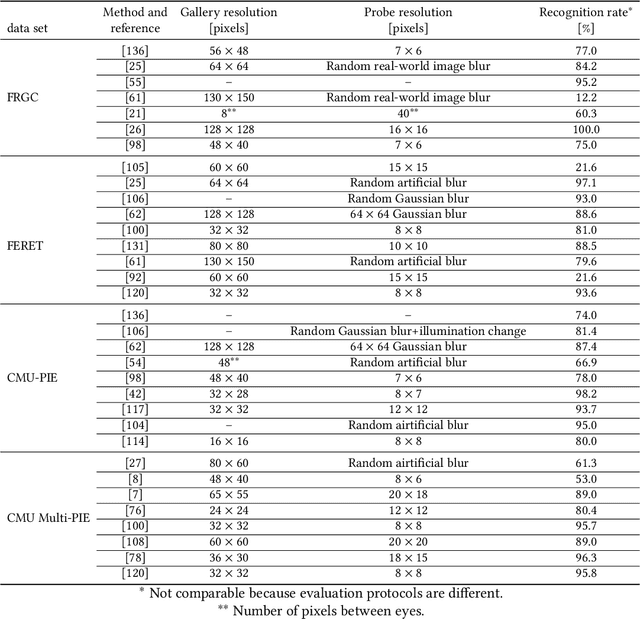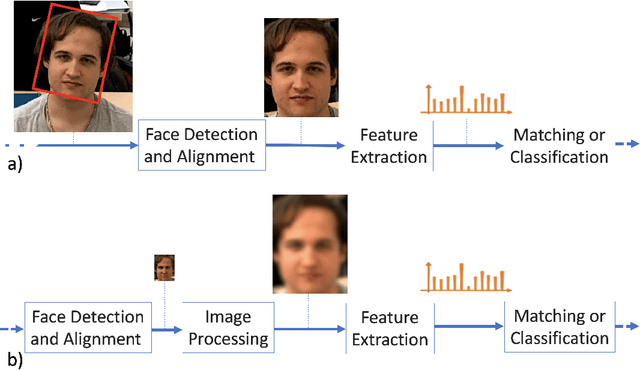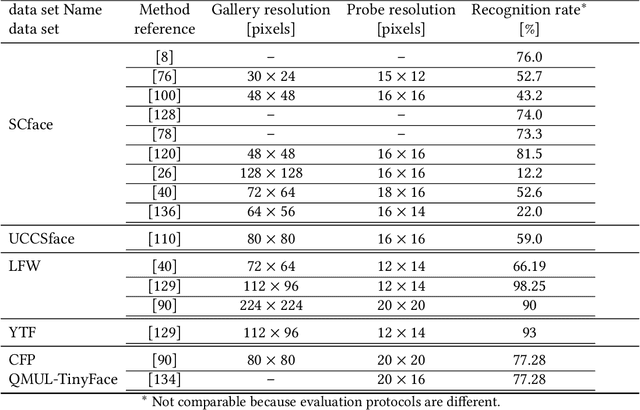Face Recognition in Low Quality Images: A Survey
Paper and Code
Aug 07, 2018



Low-resolution face recognition (LRFR) has received increasing attention over the past few years. Its applications lie widely in the real-world environment when high-resolution or high-quality images are hard to capture. One of the biggest demands for LRFR technologies is video surveillance. As the the number of surveillance cameras in the city increases, the videos that captured will need to be processed automatically. However, those videos or images are usually captured with large standoffs, arbitrary illumination condition, and diverse angles of view. Faces in these images are generally small in size. Several studies addressed this problem employed techniques like super resolution, deblurring, or learning a relationship between different resolution domains. In this paper, we provide a comprehensive review of approaches to low-resolution face recognition in the past five years. First, a general problem definition is given. Later, systematically analysis of the works on this topic is presented by catogory. In addition to describing the methods, we also focus on datasets and experiment settings. We further address the related works on unconstrained low-resolution face recognition and compare them with the result that use synthetic low-resolution data. Finally, we summarized the general limitations and speculate a priorities for the future effort.
 Add to Chrome
Add to Chrome Add to Firefox
Add to Firefox Add to Edge
Add to Edge